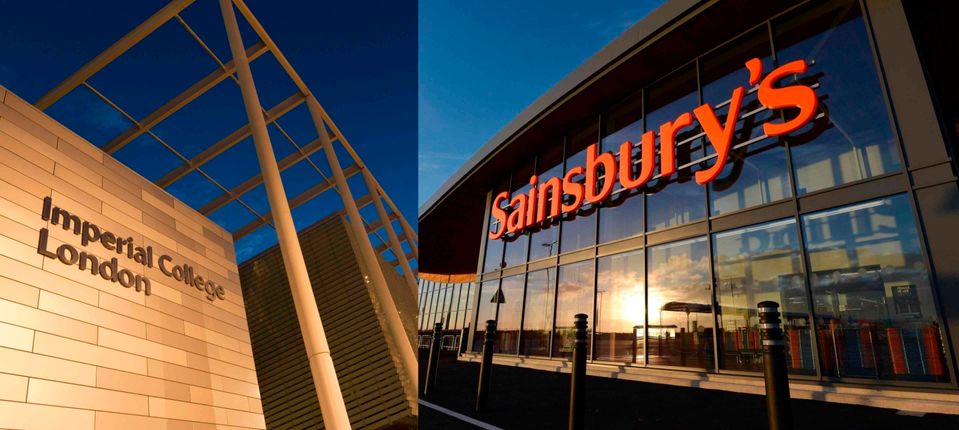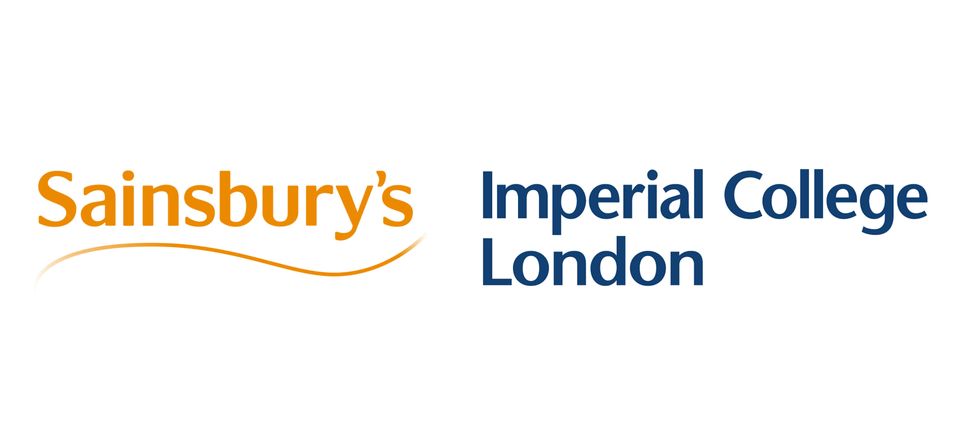Net Zero Strategy
In 2010 Sainsbury’s established a partnership with Imperial College London with the goal of pursuing research that results in reducing carbon footprint from retail activities and thus mitigates the future impacts of climate change. Research has been carried out on a range of multi-disciplinary topics and due to its success the partnership has been renewed until 2025.
By being one of the largest food retailers in the UK, Sainsbury's possess a large complex supply chain of food producers, logistics, and shops to optimise. The Partnership is constantly reviewing technologies and innovative approaches to enhance business operations. Sainsbury's is commited to reaching NET ZERO operational carbon emissions by 2035 and collaborating with Imperial College is key to reach important milestones.
Activities involve Imperial researchers from the Centre for Process System Engineering and the Grantham Institute - Climate Change and the Environment as well as other departments. Through Imperial’s independent research Sainsbury’s has been able to make informed decisions on energy saving and carbon reduction strategies, such as understanding the impact of intense heat waves in their estate or conducting a review on decarbonising the built environment.
Over the years the partnership has fostered multi-disciplinary collaboration and supported the development of PhD, MSc and undergraduate students as they apply their skills on real-world problems; allowing us to be at the forefront of the sustainability field in commercial retail. Furthermore, Imperial expertise has supported Sainsbury's both in assessing state-of-the-art technologies and in developing models that can enhance business operations, enabling to make important decisions as they embark on their journey to decarbonise the business.
Findings from the research has yielded multi-million pound savings and hundreds of thousands of tonnes of CO2 equivalent.
Research areas of the partnership focus on the broad themes of "Sustainabity and Energy Strategy" and "Engineering and Innovation for the Built Environment".
Some of the on-going activities of the partnership include:
- Climate change policy briefings and workshops to senior management
- Science based target models to decarbonise scope 1, 2, 3 emissions
- Robust carbon reporting frameworks on electricity, heating, cooling, fuels, and refrigerants
- Impact of low carbon fuels and new technologies on the built environment
- Integrated design and operation of integrated energy systems
- Cloud based solutions for HVAC, refrigeration, lighting, and on-site generation systems
- Novel key performance indicators of engineering services
- Proposing innovative refrigeration system and store design concepts
- Modelling and analysis of heat recovery of low-grade heat and thermal storage technologies
- Techno-economic models of low carbon investments aligned to Science Based Targets
- Modelling and analysis of regional UK electricity prices for dynamic energy management
- Technology reviews for sustainable transport fleets
- Modelling of rain water harvesting systems to improve water use efficiency
- Supply-chain optimisation in food retail operations
Research learnings have been many and the body of work is being showcased in lectures on the Sustainable Energy Futures and Climate Change, Management & Finance MSc Programmes at Imperial College; hence positively impacting the knowledge of students who will later be responsible of applying their skills in the real world. Also, the partnership has also been collaborator of EPSRC and NERC research projects over the years.
Imperial’s relationship with Sainsbury’s is multifaceted, spanning a number of Faculties and Institutes, with collaborative research addressing challenges related to the sustainable built environment and transport, agri-tech, supply chain decarbonisation and risk assessment, amongst others. To find out more about the broader relationship, please contact Fabian Lim at Corporate Partnerships.
"It has been a great relationship with both sides gaining valuable insights and we’re really looking forward to continue making breakthroughs that can have a positive impact on the environment" - David Merefield, Carbon, Utilities & Engineering Manager at Sainsbury’s Supermarkets Ltd.
"As a team we plan to work together on using state-of-the-art models to develop new low carbon know-how that helps ensure organisations are well positioned to respond to the effects of climate change" - Prof Nilay Shah, Professor in Process Systems Engineering

